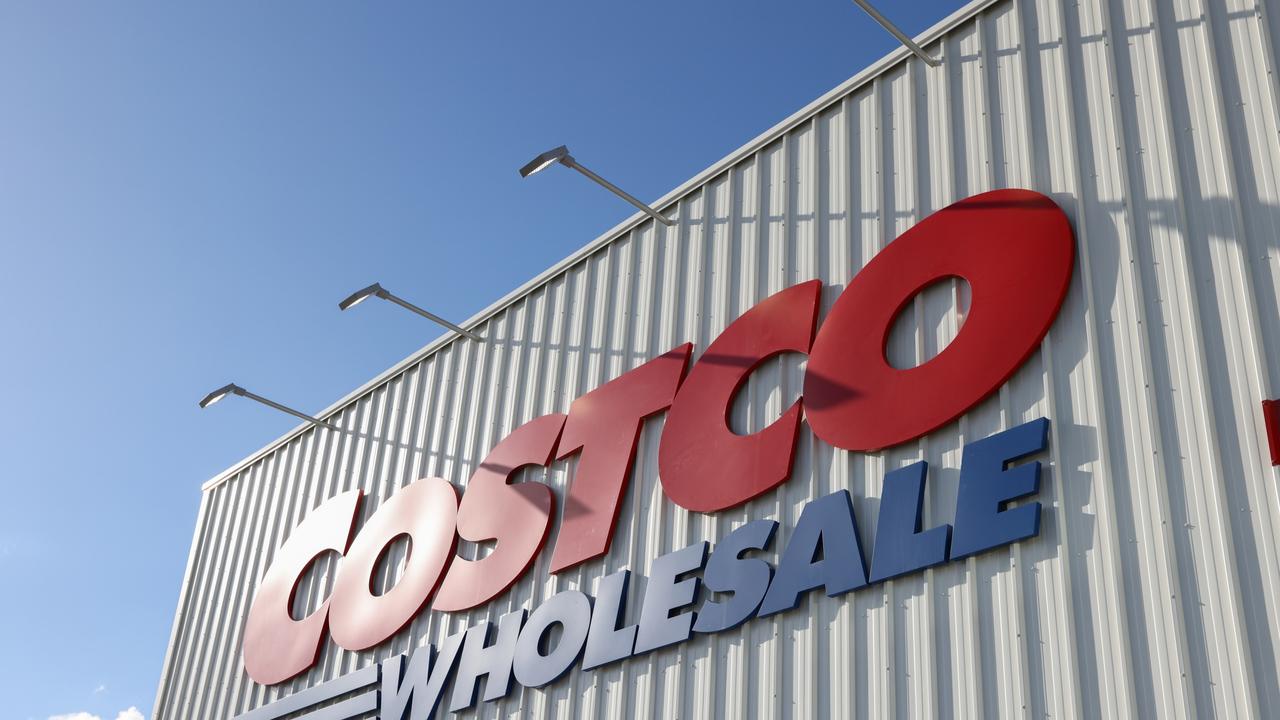7-Eleven store dragged into mystery scheme to sell rapid antigen tests
Convenience store chain 7-Eleven has found itself at the centre of a mystery plan to sell RAT tests
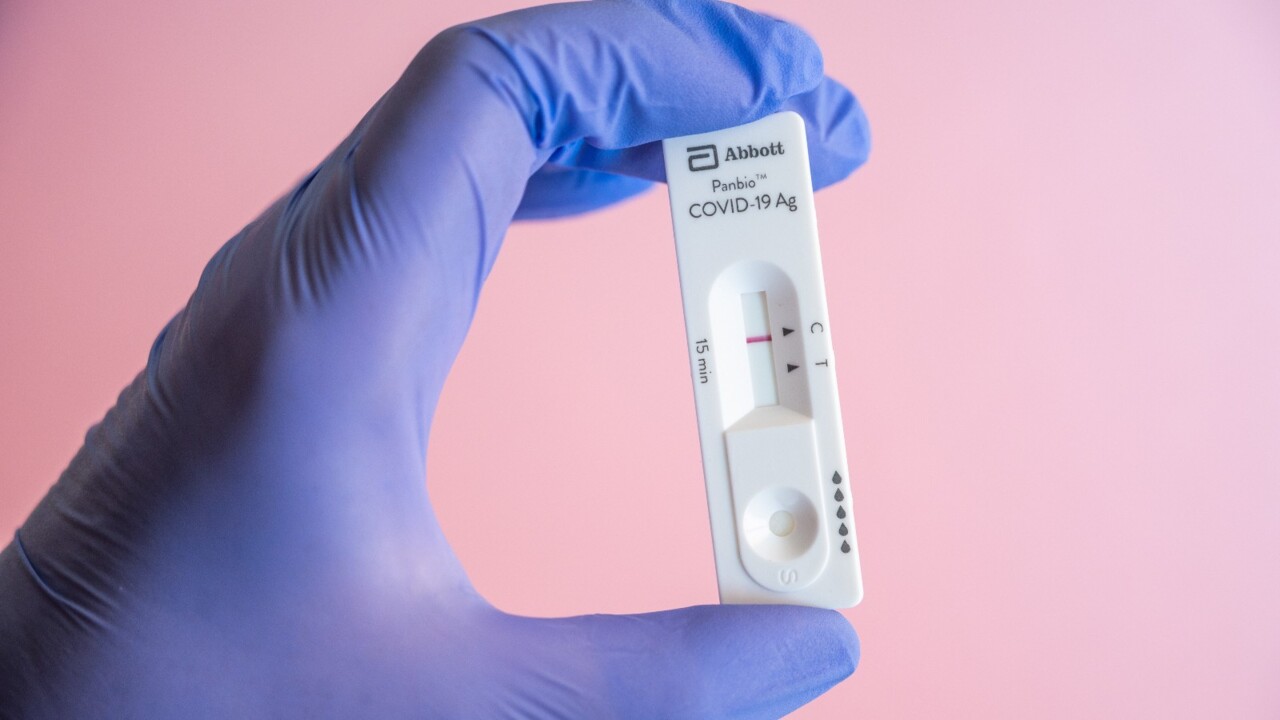
Retail
Don't miss out on the headlines from Retail. Followed categories will be added to My News.
Convenience store chain 7-Eleven has found itself at the centre of a mystery plan to sell RAT tests.
The hard to find tests were on offer for $300 a packet for pick up at a Sydney 7-Eleven store but the store in question had no knowledge of it. The person selling the tests has insisted everything was above board and they merely had spare kits to sell.
A massive shortage of the tests has led some people to take desperate measures to get their hands on them.
It comes hot on the heels of a Melbourne cafe which was criticised for offering a two-pack of tests for orders over $159.
The consumer watchdog has said it has “significant concerns” over the retail price of rapid antigen tests (RATs) which in some instances has seen a single test, which wholesales for between $3.95 and $11.45, marked up to as much as $70 a pop.
There remains a huge shortage of the tests around Australia.
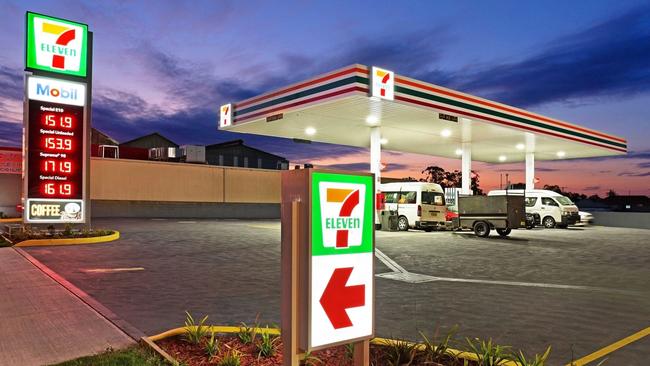
On Tuesday, black and white crudely made signs appeared around Sydney’s busy Central station saying ‘Available; rapid antigen tests” and sporting a giant QR code.
The QR code directed to a page where a box of 20 Panbio branded Covid-19 rapid tests, made by US firm Abbott Laboratories were for sale for $300.
Several pharmacy websites have the identical product on sale for $250 or cheaper but that is discounted from $300.
The text on the page said the kit “was purchased while overseas”.
“The kit is no longer needed. I can provide free delivery to CBD and surrounding areas at a date or time of your choice”.
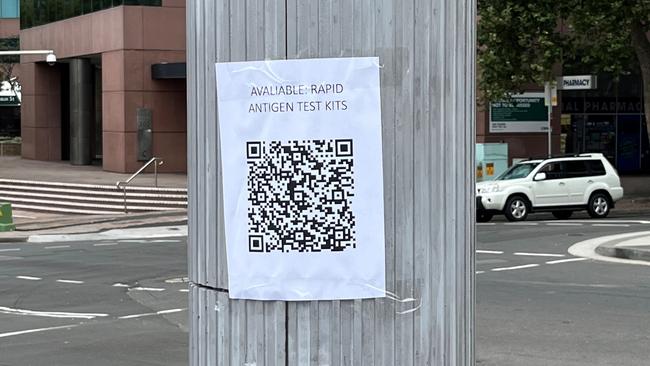
When you clicked on the option to pick up, it directed you to a 7-Eleven store in the city.
News.com.au understands that 7-Eleven had no knowledge of the sale. Rather an enterprising local resident advertised the tests for sale and used the store as a drop off point due to it being brightly lit.
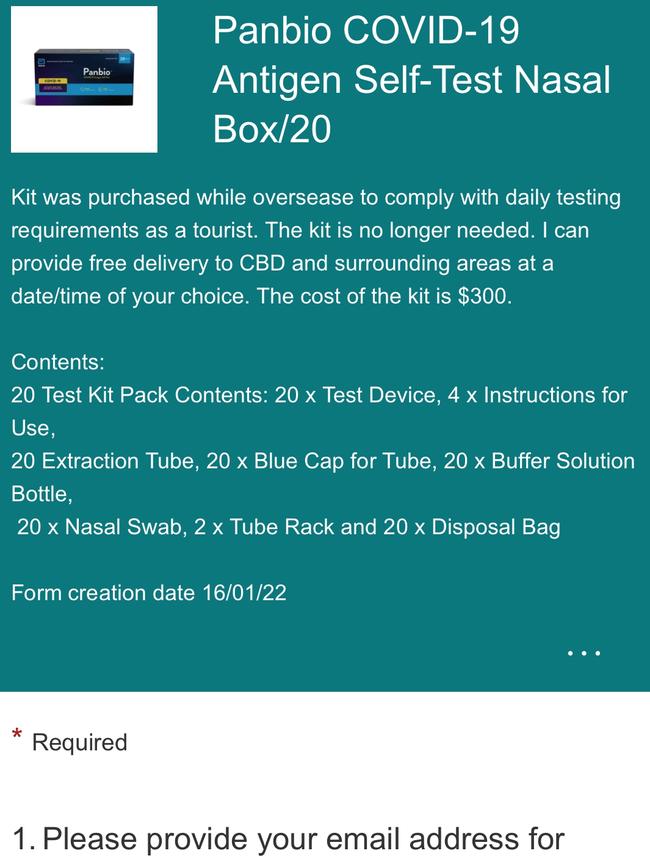
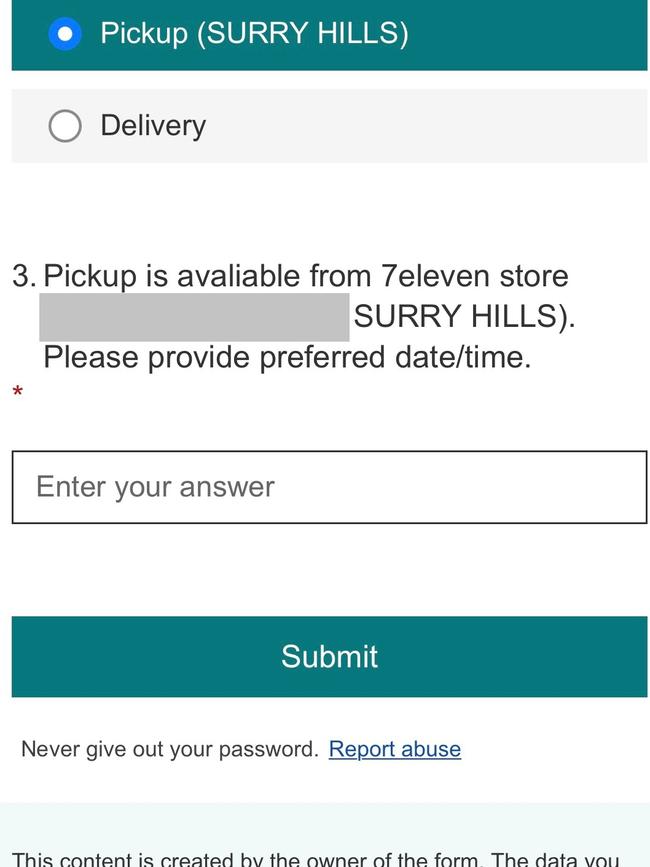
The man selling the tests told news.com.au he had bought several packs of 20 kits during a holiday.
“I was travelling with a person and we had a three week holiday planned across a few countries in Asia. Some of the countries mandate daily RAT and require you to upload evidence each day,” he said on condition of anonymity.
“I purchased enough kits to see us both through the period we were travelling with a small buffer just in case.”
However he came back to Australia early with three packs of tests he no longer needed.
“I tried using Facebook marketplace, eBay, Gumtree etc. But found that each platform had complicated guidelines around the sale of RAT.
“The only solution was to have a good old fashioned garage sale and luckily we can do that virtually using (QR codes) to remain Covid safe.”
He said he chose 7-Eleven as a pick up point simply because it was close by, was well lit and had CCTV.
“So it seemed like a safe option”.
He said he only charged enough to cover his expenses.
The desperate search for RATs has led some businesses to offer them as an incentive to customers – which has not gone down well.
Melbourne coffee roasters, St. Ali were lashed on social media after the company ran an offer to include a free two-pack of Rapid Antigen Tests on orders over $159.
However, the move drew immense criticism on social media, with people labelling the promotion as “tacky” and “unethical,” and others swearing off the brand.
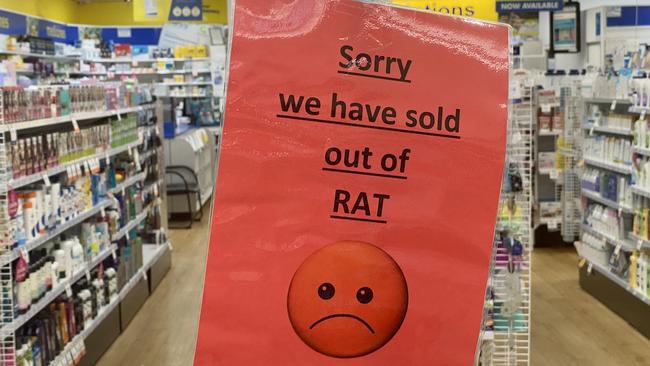
ACCC calls out ‘outrageous’ RAT prices
Rapid tests can now be used as conformation of a Covid-19 infection, alongside traditional PCR tests.
But a severe lack of availability has seen some sellers hike prices to what the Australian Consumer and Competition Commission (ACCC) has said is “outrageous” levels.
Despite the wholesale cost of a test ranging from $3.95 to $11.45 a test, the ACCC has found that some retailers are charging more than ten times the cost of the tests as demand skyrockets.
Pharmacists and service stations were the most complained about RAT sellers.
“At the extreme end, we have received reports or seen media coverage of tests costing up to $500 for two tests through online marketplaces, and over $70 per test through convenience stores, service stations and independent supermarkets, which is clearly outrageous,” ACCC Chair Rod Sims said on Monday.
“There are several businesses that have repeatedly come to our notice thanks to the information provided by the public. We are asking those businesses to urgently explain the prices they are charging.”
The consumer watchdog has contacted more than 40 test suppliers, major retailers and pharmacy chains seeking information about their costs, current pricing, and stock availability, and reminding them they need to be able to substantiate any claims they make to consumers about the reasons for higher prices.
The ACCC added that “complex supply chains” can mean prices will vary. But they shouldn’t vary to the amount some sellers are trying to flog them off for.
The ACCC has received over 1800 reports from consumers about rapid antigen tests since Christmas and said it was now averaging close to 150 reports a day.
A survey by think tank the Australia Institute found 72 per cent of Australians believe the government should provide RATs to everyone free of charge.
Even Coalition voters backed the call for free RAT tests with 66 per cent of voters who voted for Scott Morrison urging the Prime Minister to act.
– with Samantha Maiden and Jess Wang.
Originally published as 7-Eleven store dragged into mystery scheme to sell rapid antigen tests



